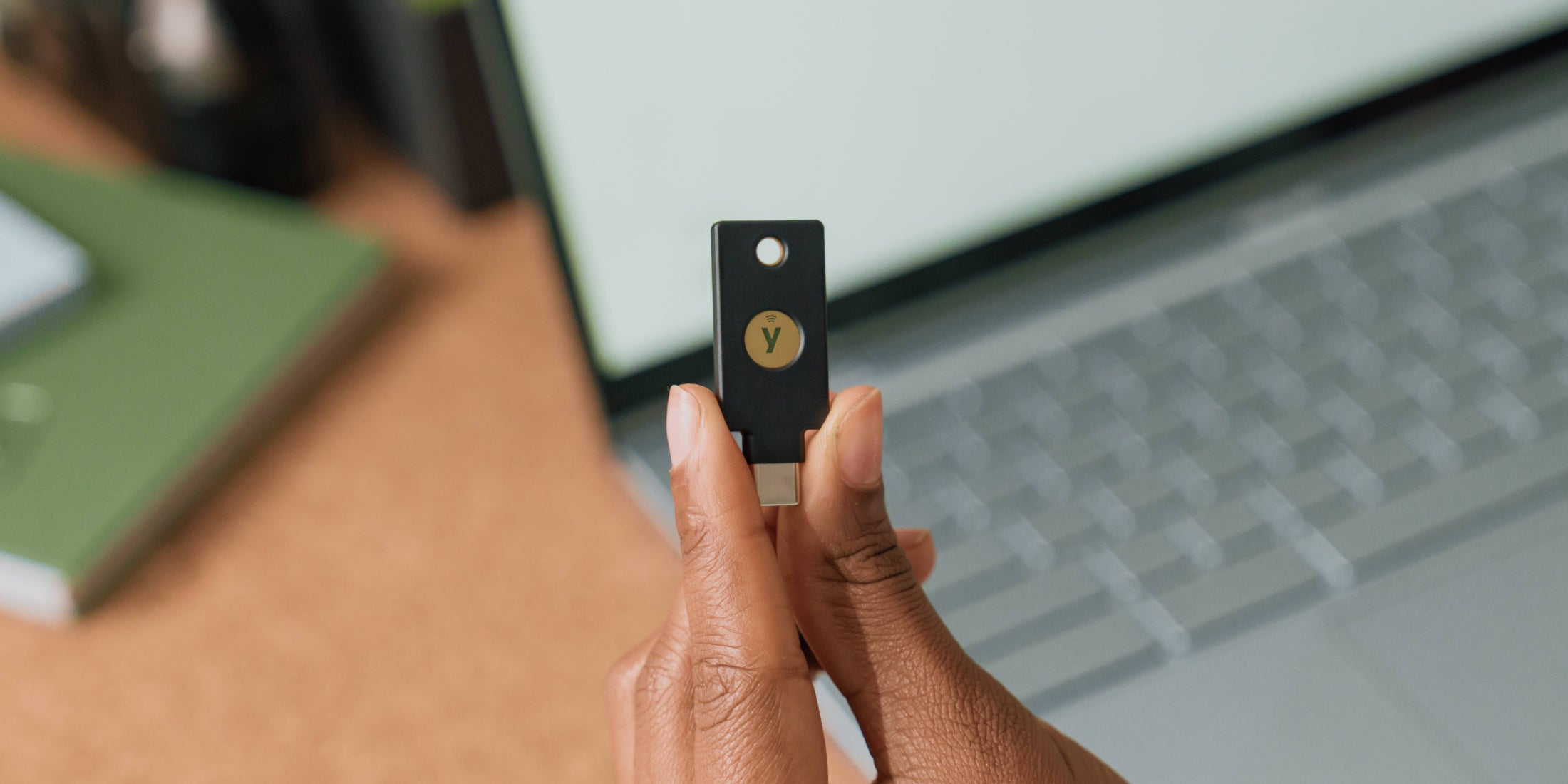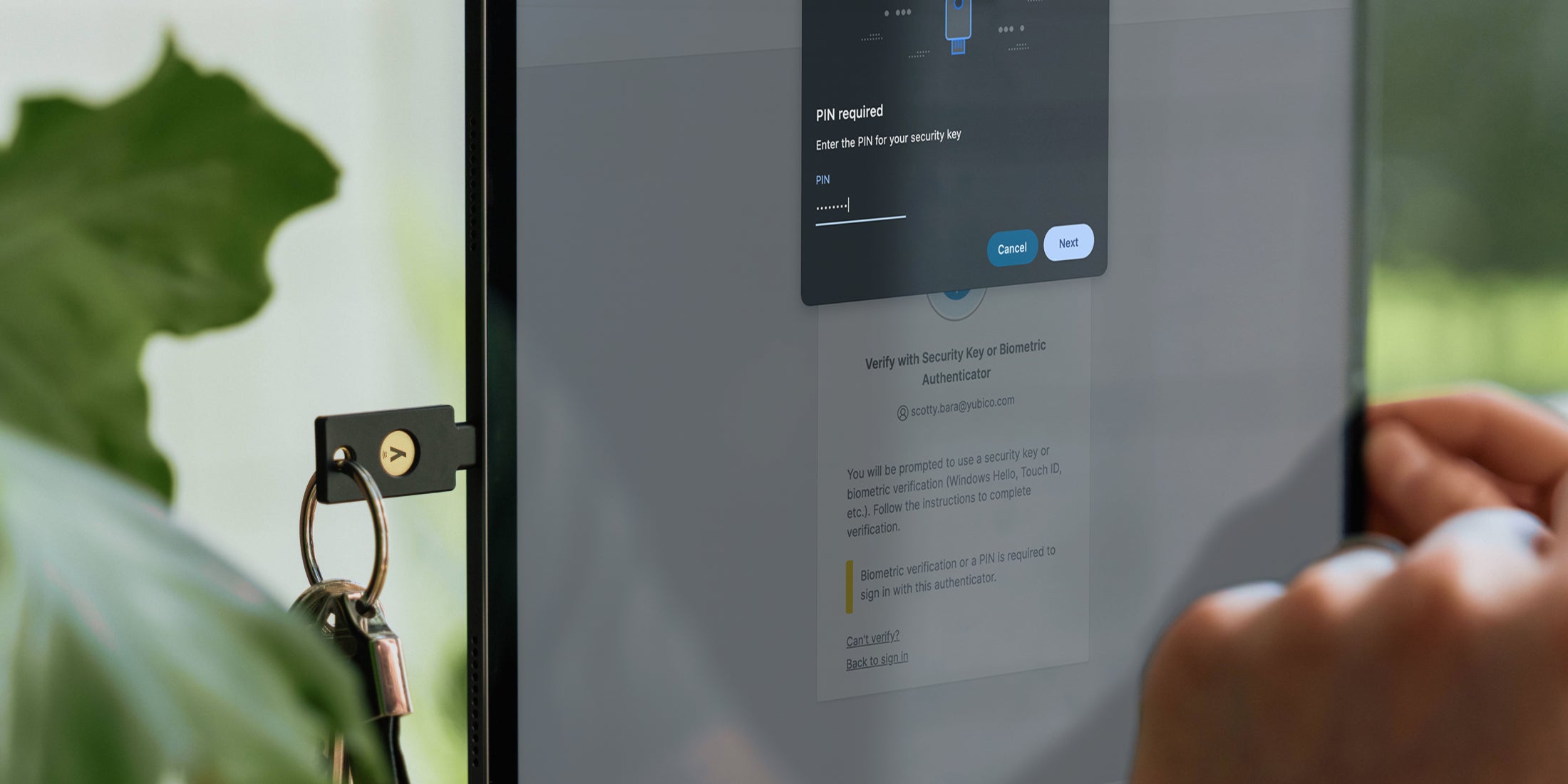In the matter of just one week, Google reported that it saw more than 18 million daily malware and phishing emails related to COVID-19. That’s an astonishing number, and one that is not likely to slow down any time soon.
For organizations across the globe, it is imperative to quickly, securely, and affordably fill existing security gaps to effectively support remote workers. For government agencies, the stakes are even higher. It is critical to protect and sustain our government infrastructures in a time when many citizens are relying on these services more than ever before.
Preventative measures against phishing are not new, but scaling them quickly across an organization is. This is uncharted territory for many government agencies, and the Personal Identity Verification (PIV) and Common Access Card (CAC) authentication infrastructure lacks the convenience and flexibility required to support a rapid shift to remote work environments. While PIV and CAC set a high bar for security, they rely on in-person identification to issue credentials — an impractical requirement when servicing droves of new remote workers or renewing recently expired credentials.
US government releases guidance on securing remote workers
Recognizing the immediate need for increased security without disrupting productivity, the United States White House Office of Management and Budget (OMB) released a directive for the broader government. The memo acknowledges three main points:
-
- Not all agencies may be able to issue PIV credentials during the time of remote work.
- Agencies are directed to use the breadth of available technology capabilities to fulfill service gaps and deliver mission outcomes.
- Agencies should be prepared to issue an alternate credential or authenticator for physical and logical access.
YubiKey approved as PIV alternative for strong authentication
For federal entities, we know that this means finding applications and solutions — like the YubiKey — that already have the government seal of approval and a federal terms of service agreement to enable rapid and seamless deployments.
“A FIDO security key can help bridge the gap,” explains Jeremy Grant, Managing
Director of Cybersecurity at Venable, and former Senior Advisor to the Obama Administration’s National Strategy for Trusted Identities in Cyberspace.
“Much like the PIV card, FIDO security keys leverage public key cryptography for authentication, which can’t be phished — an important benefit at a time when we’re seeing an explosion of COVID-related phishing attacks,” continues Grant. “Agencies can mail FIDO security keys directly to employees needing strong authentication, and because they work via USB and NFC, they don’t require a specialized reader as PIV cards do.”
FIDO security keys are 1 of 3 government-approved alternate authenticators, according to the Department of Defense. This guidance was released as early as 2018, demonstrating that the US government recognized the need for agile, adaptable, and affordable security solutions far before COVID-19.
Global governments recommend multi-factor authentication to protect remote workers
Efforts from the US government are underscored by similar initiatives by many other leading government agencies around the world. For example, the British NCSC (National Cyber Security Centre) and European Union Agency For Cybersecurity (ENISA) both issued guidance on best practices to secure citizens and employees working remotely, and strongly recommended multi-factor authentication (MFA) as a top priority.
For more information on the YubiKey as a federally-approved authentication solution, tune into our latest on-demand panel webinar with Danelle Barrett, former US Rear Admiral, and Director Navy Cyber Security and Deputy Chief Information Officer.
Additionally, read how FIDO2 is aiding eIDAS (electronic identification, authentication and trust services) as the legal basis for cross-border interoperability of electronic identification, authentication, and electronic signatures amongst EU Member States.





